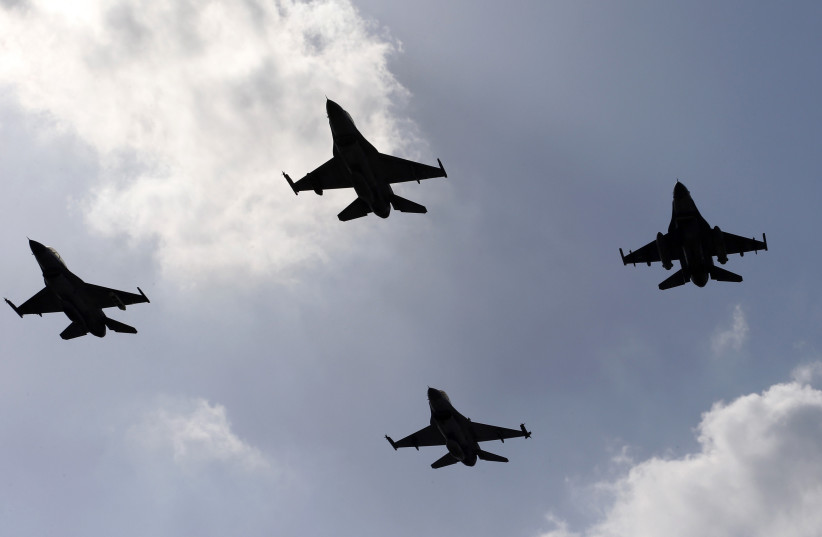Jordanian airstrikes targeted several sites near the Jordanian-Syrian border on Thursday night, according to the local news site Suwayda24.
One of the sites targeted was located in the town of Al Ghariyah, while another strike targeted the home of a man named Ahed al-Ramthan in the town of Al-Shaab, both south of As-Suwayda.
Local and regional intelligence sources told Reuters that the airstrikes targeted suspected warehouses and hideouts of Iranian-backed drug smugglers.
Jordan ups crackdown on drug, weapons smugglers
Earlier this month, Jordanian airstrikes reportedly targeted arms and narcotic smugglers in southern Syria.

Suspected Jordanian airstrikes in May targeted sites in the same area, killing a drug smuggler named Marie al-Ramthan in his home in Shaab. According to opposition-affiliated media outlets in Syria, Ramthan had ties with the Syrian military and Hezbollah and used those ties to expand his drug smuggling. It is unclear as of yet if Ramthan is tied to the Ramthan targeted in the latest reported strike.
The Jordanian Army has thwarted several drug and weapons smuggling attempts from Syria throughout the past year, including in recent weeks. Armed clashes have repeatedly erupted between Jordanian forces and the smugglers, with one Jordanian soldier and several smugglers killed.
Chairman of Jordan's Joint Chiefs of Staff, Maj. Gen. Yousef Huneiti, pushed for the improvement of the country's border guard units on Thursday, saying that all the latest and most sophisticated equipment was being provided to the units to combat infiltrations and smuggling attempts, according to Jordan's state news agency.
Huneiti also instructed the army to start plans to build an electronic fence along the border to deter smuggling.
Jordanian officials say pro-Iranian terrorists behind smuggling
Jordanian officials, like their Western allies, say that Lebanon's Iran-backed Hezbollah group and other pro-Iranian terror groups who control much of southern Syria were behind a surge in drug and weapons smuggling.
Iran and Hezbollah say the allegations are part of Western plots against the country. Syria denies complicity with Iranian-backed terrorists linked to its army and security forces.
Jordan has been promised more US military aid to improve security on the border, where Washington has given around $1 billion to establish border posts since the Syrian conflict began in 2011, Jordanian officials say.
UN experts and US and European officials say the illicit drug trade finances a proliferation of pro-Iranian terrorists and pro-government paramilitary forces created by more than a decade of conflict in Syria.
War-torn Syria has become the region's main site for a multi-billion-dollar drug trade, with Jordan being a key transit route to the oil-rich Gulf states for a Syrian-made amphetamine known as captagon, Western anti-narcotics officials and Washington say.
